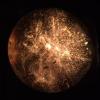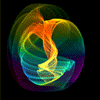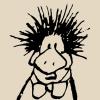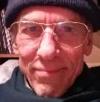Book recommendation on the nature of consciousness - Discussion
Book recommendation on the nature of consciousness
Darin, modified 9 Years ago at 3/18/15 4:18 AM
Created 9 Years ago at 3/18/15 4:18 AM
Book recommendation on the nature of consciousness
Posts: 22 Join Date: 2/3/13 Recent Posts
I am interested in reading a book (or website articles) about the nature of awareness or consciousness. Not just a narrow exposition of buddhist or other spiritual subject matter but a book that inlcudes some broader perspectives including physiological and other contemporary theories and research concerning the nature of awareness or consciousness. Can anyone make a recommendation. Thank you and namaste.

elizabeth, modified 9 Years ago at 3/18/15 6:05 AM
Created 9 Years ago at 3/18/15 6:03 AM
RE: Book recommendation on the nature of consciousness
Posts: 76 Join Date: 5/10/14 Recent Posts
One that might fit that description is The Ego Tunnel: The Science of Mind and the Myth of the Self by Thomas Metzinger. I started it and found it very intriguing but then life happened and I haven't gotten back to it yet.

Chris M, modified 9 Years ago at 3/18/15 7:31 AM
Created 9 Years ago at 3/18/15 7:31 AM
RE: Book recommendation on the nature of consciousness
Posts: 5172 Join Date: 1/26/13 Recent Posts
This is a book by Daniel Dennett that's been around for a while but remains influential. Dense, and full of interesting stuff from many realms:
http://www.amazon.com/Consciousness-Explained-Daniel-C-Dennett/dp/0316180661
http://www.amazon.com/Consciousness-Explained-Daniel-C-Dennett/dp/0316180661

Richard Zen, modified 9 Years ago at 3/18/15 8:11 AM
Created 9 Years ago at 3/18/15 8:11 AM
RE: Book recommendation on the nature of consciousness
Posts: 1665 Join Date: 5/18/10 Recent Posts
Try these suggestions:
I haven't tried Wittgenstein fully but I probably have to read more easy summaries first before I dive in.
http://www.emptiness.co/5buddhistbooks
http://www.emptiness.co/bestwesternbooks
I haven't tried Wittgenstein fully but I probably have to read more easy summaries first before I dive in.
http://www.emptiness.co/5buddhistbooks
http://www.emptiness.co/bestwesternbooks

Dream Walker, modified 9 Years ago at 3/18/15 11:42 AM
Created 9 Years ago at 3/18/15 11:42 AM
RE: Book recommendation on the nature of consciousness
Posts: 1687 Join Date: 1/18/12 Recent PostsDarin:
I am interested in reading a book (or website articles) about the nature of awareness or consciousness. Not just a narrow exposition of buddhist or other spiritual subject matter but a book that inlcudes some broader perspectives including physiological and other contemporary theories and research concerning the nature of awareness or consciousness. Can anyone make a recommendation. Thank you and namaste.
Elizabeth P:
One that might fit that description is The Ego Tunnel: The Science of Mind and the Myth of the Self by Thomas Metzinger. I started it and found it very intriguing but then life happened and I haven't gotten back to it yet.
I recommend The Ego Tunnel too...I got a lot out of it. What most people attribute to awareness or consciousness experientially is really selfing processes running. Once some of those are understood it is much easier to start picking apart the pieces that make up theoretical and philosophical approaches.
Google-> site:http://www.dharmaoverground.org Metzinger
for more discussion on this forum
~D

katy steger,thru11615 with thanks, modified 9 Years ago at 3/18/15 6:07 PM
Created 9 Years ago at 3/18/15 5:19 PM
RE: Book recommendation on the nature of consciousness
Posts: 1740 Join Date: 10/1/11 Recent PostsI am interested in reading a book (or website articles) about the nature of awareness or consciousness. Not just a narrow exposition of buddhist or other spiritual subject matter but a book that inlcudes some broader perspectives including physiological and other contemporary theories and research concerning the nature of awareness or consciousness. Can anyone make a recommendation. Thank you and namaste.
Hi, Darin.
I also enjoy Metzinger's work. However, I also like the standard of falsability. To be clear, this means that if I cannot falsify something --- for example, I cannot falsify that consciousness comes from God or other or does not --- therefore, I aim to take not positions asserting things I can't know.
This is not to say that we can't frame falsifiabilty in a pragmatic context. More on that below, but first here is an excerpt from Wikipedia today, at this time, on the Unanswered questions:
Pali Canon[edit]Majjhima Nikaya 63 [2] & 72 [3] in the Pali canon contain a list of ten unanswered questions about certain views (ditthi):
- The world is eternal.
- The world is not eternal.
- The world is (spatially) infinite.
- The world is not (spatially) infinite.
- The soul (jiva) is identical with the body.
- The soul is not identical with the body.
- The Tathagata (a perfectly enlightened being) exists after death.
- The Tathagata does not exist after death.
- The Tathagata both exists and does not exist after death.
- The Tathagata neither exists nor does not exist after death.
- What am I?
- How am I?
- Am I?
- Am I not?
- Did I exist in the past?
- Did I not exist in the past?
- What was I in the past?
- How was I in the past?
- Having been what, did I become what in the past?
- Shall I exist in future?
- Shall I not exist in future?
- What shall I be in future?
- How shall I be in future?
- Having been what, shall I become what in future?
- Whence came this person?
- Whither will he go?
So while I follow the functionalism of consciousness (broadly in a camp which includes Metzinger) I can also say I don't know the ultimate origin of consciousness. Like I can see the arising and passing away of a tree (into a new tree or soil) I don't know the ultimate origin of trees. (I speculate that its origin is also in the spectrum of classical elements, these apparently deathless doodahs.)
This is why there is emphasis put on practicality. If meditative aims are pragmatic, then non-falsifiability is sidelined; I can falsify things to a practical level. So the principle of falsifiability can be very pragmatic: One practical (framed, limited) answer that comes up in meditation about consciousness is that consciousness is variable and it can seem to completely stop and start while the body remains upright and physically calm (without twitches of seizure or stasis of stroke)-- and consciousness can be subtle to gross. So in a pragmatic frame, I can falsify the idea that consciousness has a permanent state. At an ultimate level, is consciousness eternal? I don't know.
So sitting there with the mind, practicing some forms of Buddhist meditation, one gets to see all the movements of mind consciousness as being first a narrative layer (love stories, drama stories, action stories, victim stories, hero stories, ec).. then that layer gets known, dull and dropped; then one sees maybe a "holy sh*t" layer (including maybe out of body perceptions, Godhood perceptions, perceptions of other beings/lives), then that layer gets known, dull, and dropped. Then the consciousness can show/create a quiet, still layer -- and even that may have at first a provocative après-"Whoa!"; the hindsight weirdness of an empty-boundless but aware mind. And in that layer, one can see the elemental aspects of consciousness forming, occassional bubbles of mental formations: elemental gradients as in warmer-cooler (so-called "fire" element); harder-softer (so-called "earth" element), more viscous-less viscous (so-called "water" element), attracting-repulsing (so-called "air" element) or, again, that boundless-empty as well as complete cessation.
And one can see the elemental gradients right now (without meditative stabilization): harder-softer seat, warmer-cooler body parts; attraction-repulsion of the mind moving to/away from activities; sluggishness-aggitation head to toe--- and one can still not know where/if they ultimately begin and end or if the elements are as they seem: deathless.
But when consciousness seems to cease in meditation (or to carefully consider the cessation/disappearance of consciousness during what we call "sleep", excluding the dream states) the return to consciousness seems to point to, "Hey, "my" specific consciousness not only changes based on conditions in daily life, but it seems to stop altogether sometimes." In meditation, unlike sleep sometimes one can see the cessation start (can give the perception of actually dying) and the return of consciousness, an hindsight view of coming back into consciousness.
Sitting here, using this forum in typing and reading, we could put consciousness in the element of air (the gradient or spectrum of repulsive-attractive) based on the contact that consciousness makes with objects: for example, {eye object + electrochemicals of "sight" + ocean matter as "visible" object}. But we may wonder about and want to account for the pleasure and pain that often comes with consciousness-plus-object contact and the resultant pain and pleasure therein; pain and pleasure are sometimes included in the mahābūta in addition to the classical four elements of Buddhist cosmology. This presents a question: where there is consciousness is there also a deathless element of the gradient of pain-pleasure? Or is pain-pleasure a spectrum isolated to beings that can experience sensations?
Is any of this practical? Well, the promised relief of buddhist meditation is the deathless: the deathless, nibbana, the flame going into smoke and coolness, the car going back the parts' yard, last night's burrito getting a civil engineered, morning funeral (flush!), pushin' up the daisies.. A lot of meditation motivation is about trying to find safety away from pain (the end of dukkha), whereas pain is clearly part of the way things are for us; so Buddhism speaks of ending "suffering", dissatisfaction, malaise.. other ways to translate dukkha... through mental training, bhavana, the wisdom of seeing conditions as they are.
What's practical? Is understanding "Don't know" and directly experiencing "elemental deathlessness" in seeing things plainly as they are soothing? Well, after a while, a lot of compassion comes up from the practice. There's a fair amount of annoying precociousness and/or claimsiness, unreliable "attainments" to cut through, but there's a lot of relief in compassion and seeing things as they are.
Best wishes. Sitting with own consciousness is sometimes very hard, takes a lot of patience and acceptance, training to see reactivity and let it go. It helps to have compassion for what you are.
___________________________________
Edit x3: just adding more eggs and flour

Dada Kind, modified 9 Years ago at 3/18/15 6:56 PM
Created 9 Years ago at 3/18/15 6:56 PM
RE: Book recommendation on the nature of consciousness
Posts: 633 Join Date: 11/15/13 Recent PostsDarin, modified 9 Years ago at 3/21/15 6:04 PM
Created 9 Years ago at 3/21/15 6:04 PM
RE: Book recommendation on the nature of consciousness
Posts: 22 Join Date: 2/3/13 Recent Posts
Thank you for your replies. I found a free PDF format of Metzinger's The Ego Tunnel and have begun to read it.

-- Timus --, modified 9 Years ago at 3/21/15 6:22 PM
Created 9 Years ago at 3/21/15 6:21 PM
RE: Book recommendation on the nature of consciousness
Posts: 47 Join Date: 5/17/10 Recent PostsDarin:
I am interested in reading a book (or website articles) about the nature of awareness or consciousness. ....
Check out Evan Thompson’s Waking, Dreaming, Being: Self and Consciousness in Neuroscience, Meditation, and Philosophy.
Dave sdfsdf, modified 9 Years ago at 3/21/15 6:23 PM
Created 9 Years ago at 3/21/15 6:23 PM
RE: Book recommendation on the nature of consciousness
Posts: 216 Join Date: 11/4/14 Recent Posts
Really liked your stuff Katy. Written similar stuff in the past. Fun to see likeminded individuals. Personally I differentiate between being consciousness, awareness and self awareness.

CJMacie, modified 9 Years ago at 3/29/15 6:45 PM
Created 9 Years ago at 3/23/15 6:05 AM
RE: Book recommendation on the nature of consciousness
Posts: 856 Join Date: 8/17/14 Recent Posts
Self Comes to Mind: Constructing the Conscious Brain
by Antonio Damasio, 2010
The book:
http://www.amazon.com/Self-Comes-Mind-Constructing-Conscious-ebook/dp/B003WUYOKM
The author:
http://en.wikipedia.org/wiki/Antonio_Damasio
Check out youtube talks to see how his mind works:
https://www.youtube.com/watch?v=p0L_mfpYwIk&list=PL67FE4A556FA65F6C (a series of short talks)
https://www.ted.com/talks/antonio_damasio_the_quest_to_understand_consciousness (18 minute TED talk)
.... many more available.
Damasio has done leading neuro-research for decades. Back in the 1970's he hypothesized that primal emotions (compare vedana -- basic attraction, aversion, neutrality) were a basis of consciousness, for which he was ridiculed and despised in the scientific community. In the 1990's, that hypothesis was conclusively experimentally confirmed.
His book is remarkable for coming up with ideas that closely parallel fundamental ideas, insights in the Buddhist Abdhidhamma texts (my finding). Damasio, however, said (in a radio interview a friend heard) that he has no knowledge of Buddhism. To my mind, that gives his ideas all the more credibility. (The vast majority of neuroscience by Buddhist sympathizers amounts to case studies in conformation bias.)
by Antonio Damasio, 2010
The book:
http://www.amazon.com/Self-Comes-Mind-Constructing-Conscious-ebook/dp/B003WUYOKM
The author:
http://en.wikipedia.org/wiki/Antonio_Damasio
Check out youtube talks to see how his mind works:
https://www.youtube.com/watch?v=p0L_mfpYwIk&list=PL67FE4A556FA65F6C (a series of short talks)
https://www.ted.com/talks/antonio_damasio_the_quest_to_understand_consciousness (18 minute TED talk)
.... many more available.
Damasio has done leading neuro-research for decades. Back in the 1970's he hypothesized that primal emotions (compare vedana -- basic attraction, aversion, neutrality) were a basis of consciousness, for which he was ridiculed and despised in the scientific community. In the 1990's, that hypothesis was conclusively experimentally confirmed.
His book is remarkable for coming up with ideas that closely parallel fundamental ideas, insights in the Buddhist Abdhidhamma texts (my finding). Damasio, however, said (in a radio interview a friend heard) that he has no knowledge of Buddhism. To my mind, that gives his ideas all the more credibility. (The vast majority of neuroscience by Buddhist sympathizers amounts to case studies in conformation bias.)

Tarver , modified 9 Years ago at 3/29/15 2:37 PM
Created 9 Years ago at 3/29/15 2:31 PM
RE: Book recommendation on the nature of consciousness
Posts: 262 Join Date: 2/3/10 Recent Posts
http://tinyurl.com/evolution-and-consciousness both discusses the nature of consciousness in some detail and locates consciousness within the context of the evolution of life on earth -- a fairly broad perspective.





